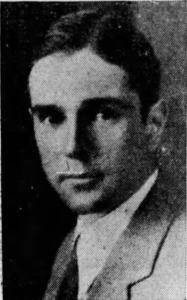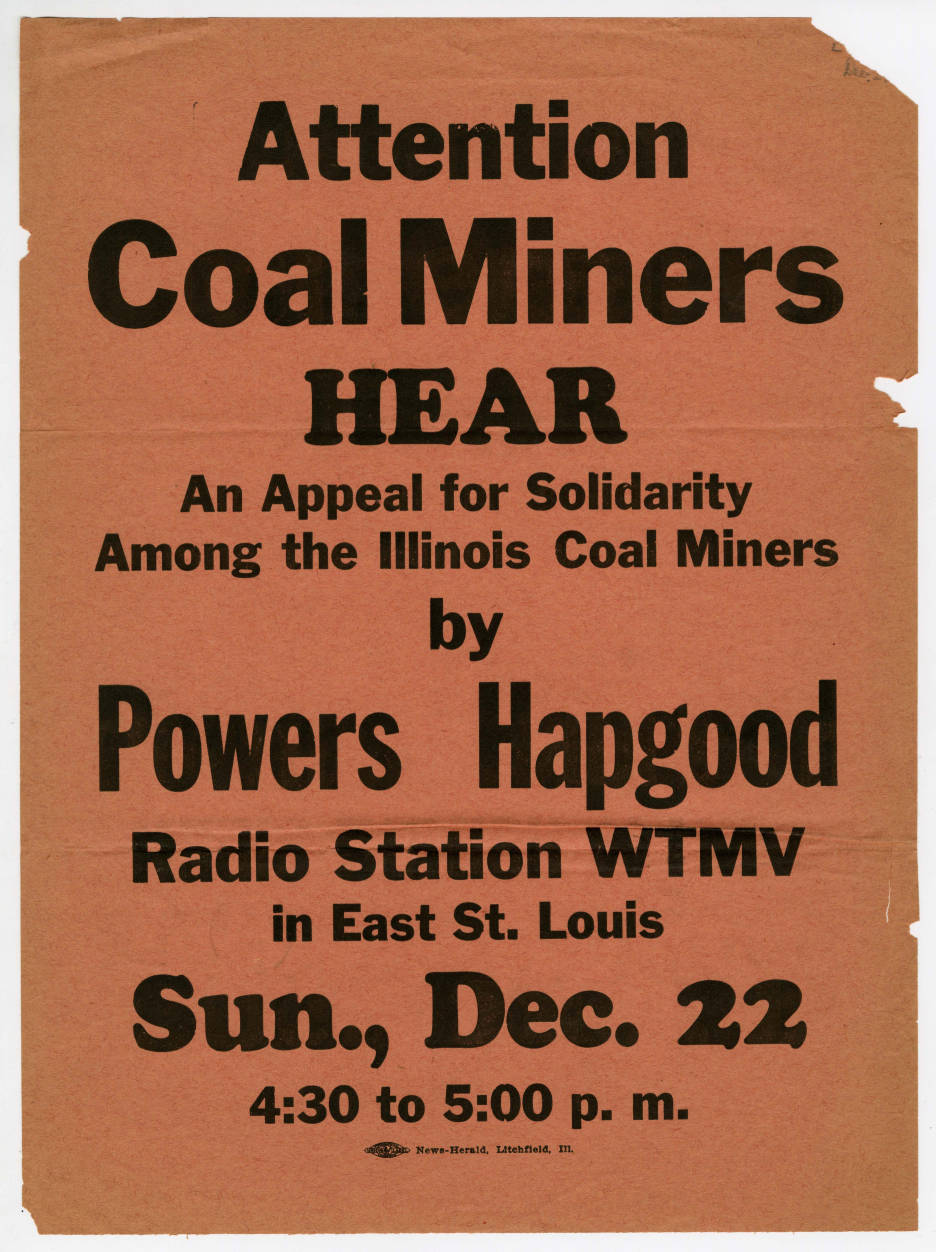
Photo info ...
Credit: Evansville Courier and PressView Source
(Dec. 28, 1899-Feb. 4, 1949). Powers Hapgood, son of , was born in Chicago and raised in Indianapolis where he attended . He graduated from Harvard University in 1921 and then lived and worked as a coal miner, first in the United States and thereafter for two years in England, France, Germany, and Siberia. Hapgood was active as a union organizer and administrator, beginning in the 1920s as a member of the United Mine Workers, and he was often arrested and jailed for his participation in labor strikes and demonstrations.

Hapgood went to Boston in 1927 to assist in the unsuccessful campaign to save the anarchists Nicola Sacco and Bartolomeo Vanzetti from prison and execution. He made several speeches on their behalf, for which he was arrested. In Boston, he met his future wife, , who was the Secretary of the Sacco-Vanzetti Defense Committee. Hapgood was the Socialist party’s candidate for governor of Indiana in 1932, as was his wife in 1940.
Hapgood unsuccessfully opposed John L. Lewis for leadership of the , who served as the organization’s president from 1920 to 1960. He was one of the three founders of the Committee of Industrial Organizations (later the Congress of Industrial Organizations or CIO) in 1935.
In 1936 he became editor of the , a post he held until his death.
In 1937, he organized the New England branch of the CIO and was regional director in Indiana from 1941 through 1948, when he became assistant to the national director of the CIO. In between his service for the CIO in New England and Indiana, Hapgood served as president of the United Shoe Workers of America, where he helped to organize southern sharecroppers.

Help improve this entry
Contribute information, offer corrections, suggest images.
You can also recommend new entries related to this topic.